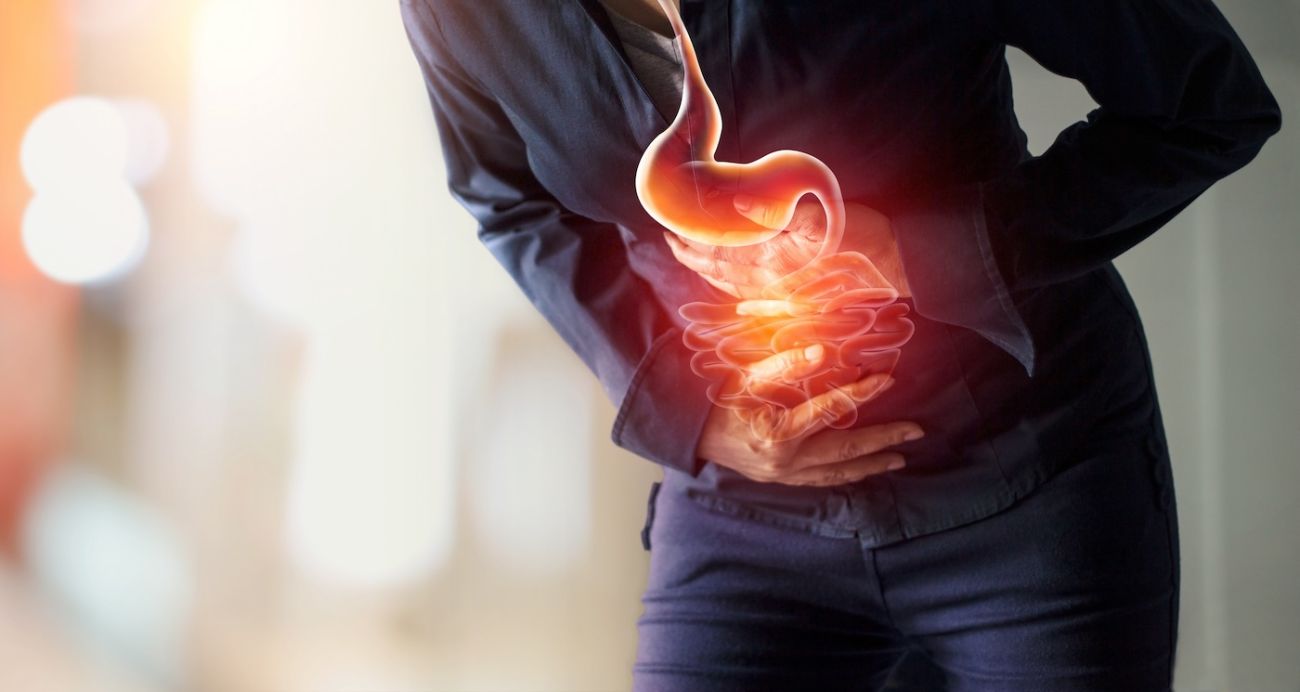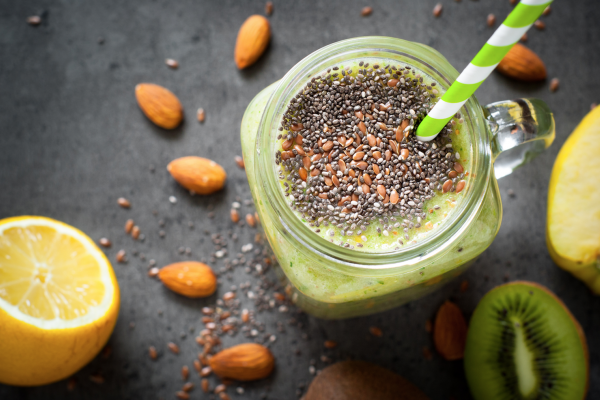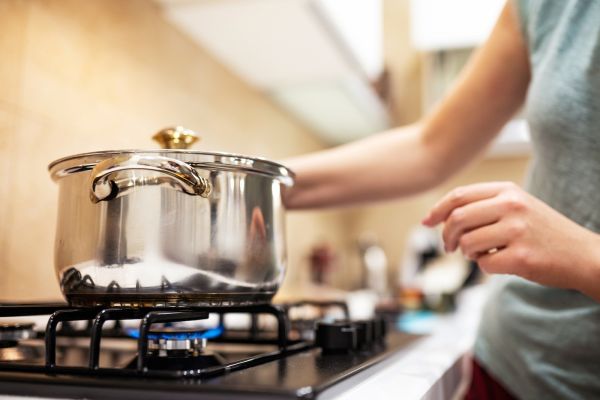When food moves too quickly from the stomach into the small intestine, it can cause uncomfortable and sometimes painful symptoms of cramping, nausea, vomiting and more.
This condition of rapid stomach emptying — called dumping syndrome — can occur when your normal digestive process is altered or lost, such as when surgery for stomach or esophageal cancer alters the size, shape or position of the stomach. Rarely, dumping syndrome can happen without a surgery.
Dumping syndrome is caused by different contributing factor, including: changing how food empties the stomach, how the nerves are distributed to the stomach, and the stimulation of gastrointestinal hormones. The condition also may decrease how well your body is able to absorb nutrients from the foods you eat.
However, symptoms can often be controlled or stopped with diet changes and Roswell Park Comprehensive Cancer Center's certified dietitians provide you with strategies to help.
Digestion symptoms to tell your doctor
People who experience dumping syndrome often have “early” symptoms that occur within 15-30 minutes after eating, especially after eating sugary foods. Symptoms of “early” dumping may include:
- nausea
- vomiting
- belly cramping
- diarrhea
- dizziness
- fast heartbeat
- flushing (your face, neck or upper chest feels hot and skin may also look red)
- sweating
- headache
Early dumping syndrome usually gets better on its own within three months. Symptoms of “late” dumping syndrome usually occur several hours after eating. These symptoms can include:
- sweating
- fast heartbeat
- weakness
- hunger
Nutrition at Roswell Park
Our team of nutritionists can play a large role in your care — learn more about all the services we offer.
Tips to prevent and ease dumping syndrome
Changing the way that you eat after surgery offers the best way to prevent and treat dumping syndrome. Try these strategies to help improve digestion and ease the symptoms of rapid stomach emptying:
- Eat small, frequent meals (five to six meals per day).
- Snack or have a small meal every 2-3 hours, instead of eating three large meals.
- Stop eating when you feel full.
- Eat slowly and chew your food well.
- Eat a variety of foods, especially foods you like, but avoid foods you know will cause you digestive problems.
- Eat foods high in protein, such as tender red meats, poultry, fish, eggs, peanut butter and beans.
- If you have problems tolerating fatty foods, try low-fat options or eating only small amounts.
- Avoid drinking large amounts of fluids with meals. Small sips are okay, but try to drink most fluids 30 minutes before and after meals. Ideally, drink 64 ounces (eight cups) of fluid throughout the day.
- Eat foods high in soluble fiber, including bananas, blackberries, nectarines, pears, plums, strawberries, tangerines, carrots, sweet potatoes, oatmeal, oat bran, beans (black, kidney, lima, navy) or commercial fiber supplements.
- Consider lactose-free dairy products.
- Avoid or limit foods high in sugar such as honey, candy, sugary drinks, concentrated juices, canned fruits with sugar or syrup, and dried fruits.
Talk with your doctor about your rapid stomach emptying symptoms, and their patterns. If symptoms are not getting better, your doctor might prescribe medicine to prevent diarrhea or suggest additional testing, such as an oral glucose challenge, upper GI series or a gastric emptying study.




